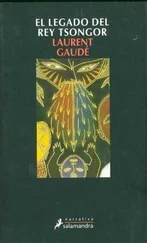Laurent Binet - HHhH
Здесь есть возможность читать онлайн «Laurent Binet - HHhH» весь текст электронной книги совершенно бесплатно (целиком полную версию без сокращений). В некоторых случаях можно слушать аудио, скачать через торрент в формате fb2 и присутствует краткое содержание. Город: New York, Год выпуска: 2012, ISBN: 2012, Издательство: Farrar, Straus and Giroux, Жанр: Историческая проза, на английском языке. Описание произведения, (предисловие) а так же отзывы посетителей доступны на портале библиотеки ЛибКат.
- Название:HHhH
- Автор:
- Издательство:Farrar, Straus and Giroux
- Жанр:
- Год:2012
- Город:New York
- ISBN:978-0-374-16991-6
- Рейтинг книги:3 / 5. Голосов: 1
-
Избранное:Добавить в избранное
- Отзывы:
-
Ваша оценка:
- 60
- 1
- 2
- 3
- 4
- 5
HHhH: краткое содержание, описание и аннотация
Предлагаем к чтению аннотацию, описание, краткое содержание или предисловие (зависит от того, что написал сам автор книги «HHhH»). Если вы не нашли необходимую информацию о книге — напишите в комментариях, мы постараемся отыскать её.
HHhH — читать онлайн бесплатно полную книгу (весь текст) целиком
Ниже представлен текст книги, разбитый по страницам. Система сохранения места последней прочитанной страницы, позволяет с удобством читать онлайн бесплатно книгу «HHhH», без необходимости каждый раз заново искать на чём Вы остановились. Поставьте закладку, и сможете в любой момент перейти на страницу, на которой закончили чтение.
Интервал:
Закладка:
When Chacko writes: “The castle could be entered in several ways, but Heydrich, the showman, always came and went by the main gate, where the guard was,” I am fascinated by his certainty. I wonder: “How does he know? How can he be so sure?”
Another example. This is a dialogue between Gabčík and Heydrich’s Czech chef. The chef is telling Gabčík about the security surrounding Heydrich in his own house. “Heydrich scorns protection, but the SS take their job seriously. He’s their leader, you know. They treat him like a god. He looks like they say they all want to look. The Blond Beast. They actually call him that in the service. You won’t be able to truly understand Germans until you realize they mean it as a compliment.”
Chacko’s art resides in his skill at integrating historical fact—Heydrich really was nicknamed the Blond Beast—into psychologically acute dialogue. It is through dialogue that he turns history into fiction. And I must say, loath as I am to use this method, that he does it very successfully: I was really gripped by several passages. When Gabčík replies to the chef, who has just given him a terrifying description of Heydrich, “Don’t worry. He’s human. There’s one way to prove that,” I cheered as if I were watching a Western.
Obviously, the scenes in which he describes Gabčík being given a blow job in the middle of the living room, or Kubiš jerking off in the bathroom, are probably invented. I know that Chacko doesn’t know if Gabčík was given a blow job, nor (if he was) in what circumstances, and he certainly doesn’t know where or when Kubiš jerked off: this kind of scene, by its very nature, has no witnesses—well, with a few rare exceptions—and Kubiš had no reason to tell anyone about his little jerk-off sessions, and he didn’t keep a diary. But the author deals perfectly with the psychological dimension of his novel, which is full of interior monologues, and makes no claims to exact historical accuracy. Indeed, the book opens with the formula: “Any similarity of characters or events to real persons or actual events is coincidental.” In other words, Chacko wanted to write a novel—well researched, admittedly, but without being a slave to the facts. So he bases his tale on a true story, fully exploiting its novelistic elements, blithely inventing when that helps the narration, but without being answerable to history. He’s a skillful cheat. A trickster. Well… a novelist, basically.
Now that I look at the photos more carefully, I’m unsure about the color. The exhibition was several years ago, so perhaps my memory is betraying me. But I really see it black, that Mercedes! Maybe my imagination is playing games with me? When the time comes, I’ll just have to decide. Or verify the truth. One way or the other.
156
I asked Natacha about the Mercedes. She remembers it being black as well.
157
The more powerful Heydrich grows, the more he behaves like Hitler. Now, like the Führer, he tortures his colleagues with long, impassioned speeches on the destiny of the world. Frank, Eichmann, Böhme, Müller, and Schellenberg listen quietly to their boss’s delirious commentaries as he bends over a map of the world:
“The Scandinavians, the Dutch, and the Flemish belong to the Germanic race… the Middle East and Africa will be shared with the Italians… the Russians will be driven back beyond the Urals and their country will be colonized by peasant soldiers… the Urals will be our eastern border. Our new recruits will do their national service there and they’ll be trained in guerrilla warfare as border guards. If anyone’s not willing to fight tooth and nail, I’ll let them go, I won’t do anything to them…”
Intoxicated by his own power, Heydrich—like his master—already imagines himself master of the world. But there’s still a war to be won, Russia to be conquered, and a long list of heirs to supplant. Heydrich’s star may still be rising through the black night of the Reich, but even looking at it optimistically, all of this is very premature.
The battle between Hitler’s potential successors has always been ferocious. Where does Heydrich fit in, stuck out here in this backwater? Many people, fascinated by his evil aura and using his meteoric rise as evidence, argue that he would have ended up succeeding (or deposing) the Führer.
But in 1942, the road to the highest peak is still long. More than ever, Heydrich is being wooed by the first rank of pretenders. Göring, Bormann, Goebbels—all try to lure him away from Himmler, who jealously watches over his right-hand man. Even if his new role in Prague and his responsibility for the Final Solution have given him an added dimension, Heydrich is not yet quite at their level. Göring is still officially the regime’s number two and Hitler’s designated successor, even if he’s fallen well behind in the race to succeed Hitler. Bormann has replaced Rudolf Hess at the head of the Party and by Hitler’s side. The propaganda machine controlled by Goebbels is, more than ever, propping up the regime. Himmler is in charge of the Waffen SS, whose combat divisions are covering themselves in glory on every front, and he is also in total control of the system of concentration camps—two areas where Heydrich has no power.
Even if his position as Protector now allows him to short-circuit the hierarchy above him by appealing directly to Hitler, Heydrich still hasn’t decided to supplant Himmler. However insignificant Himmler may look, Heydrich knows his boss should not be underestimated. And besides, his position as number two in the SS means he can hide behind Himmler if the need arises, allowing him to bide his time until he becomes so powerful that he need fear no one.
So Heydrich’s direct rivals are, for the moment, of a lowlier kind. There is Alfred Rosenberg, minister for the Occupied Eastern Territories and the theorist behind the idea of colonizing these countries. There is Oswald Pohl, in charge of the organization of concentration camps, and—like Heydrich—the head of a “central office” (Haupt Amt, the HA in “RSHA”) within the SS. There is Hans Frank, the governor-general of Poland, Heydrich’s counterpart in Warsaw. And there is also Canaris, head of the Abwehr—Heydrich’s counterpart in the Wehrmacht. Having accumulated so many offices, Heydrich’s power is admittedly far superior to any of these men, taken one by one. But each has enough control over his own domain to prevent Heydrich really spreading his wings. Actually, looking at it that way, I should add Dalüge, head of the general police—another “central office” answering directly to Himmler in the hierarchy of the SS. His power is limited to ordinary police tasks, the maintenance of order and the enforcement of common law, but the Orpo, the Schupo, and the Kripo—while lacking the power and dark prestige of the Gestapo—are still police forces beyond Heydrich’s control.
So the road is long. But Heydrich, as he has already amply demonstrated, is not a man easily discouraged.
158
I’ve come across this anecdote in lots of books: Himmler, attending an execution at Minsk, fainted when two young girls were shot just in front of him and he was spattered with their blood. Following this unpleasant scene he realized the need to find another method, less hard on the executioners’ nerves, for continuing the extermination of the Jews and other Untermenschen .
But according to my notes, the end of this type of execution coincides with a similar realization on Heydrich’s part. He was also making an inspection visit, accompanied by his subordinate “Gestapo” Müller.
The Einsatzgruppen always carried out their work in more or less the same way: they dug a gigantic ditch, and—having gathered together hundreds or even thousands of Jews (or other supposed opponents) from the surrounding towns and villages—lined them up at the edge of the ditch and machine-gunned them. Sometimes they made them kneel down so they could put bullets in the backs of their necks. But most of the time, they didn’t even bother to check whether everyone was dead, so some were buried alive. A few survived: sheltered beneath a corpse, half-dead themselves, they waited for nightfall before digging through the earth that covered them until they reached the surface. But such cases are the miraculous exceptions. Several witnesses have described seeing pits filled with bodies piled on top of one another and hearing the groans of the dying emitted by the seething mass. Afterward, the pits were filled in. Using such primitive methods, the Einsatzgruppen exterminated a total of about one and a half million people, the vast majority Jews.
Читать дальшеИнтервал:
Закладка:
Похожие книги на «HHhH»
Представляем Вашему вниманию похожие книги на «HHhH» списком для выбора. Мы отобрали схожую по названию и смыслу литературу в надежде предоставить читателям больше вариантов отыскать новые, интересные, ещё непрочитанные произведения.
Обсуждение, отзывы о книге «HHhH» и просто собственные мнения читателей. Оставьте ваши комментарии, напишите, что Вы думаете о произведении, его смысле или главных героях. Укажите что конкретно понравилось, а что нет, и почему Вы так считаете.












